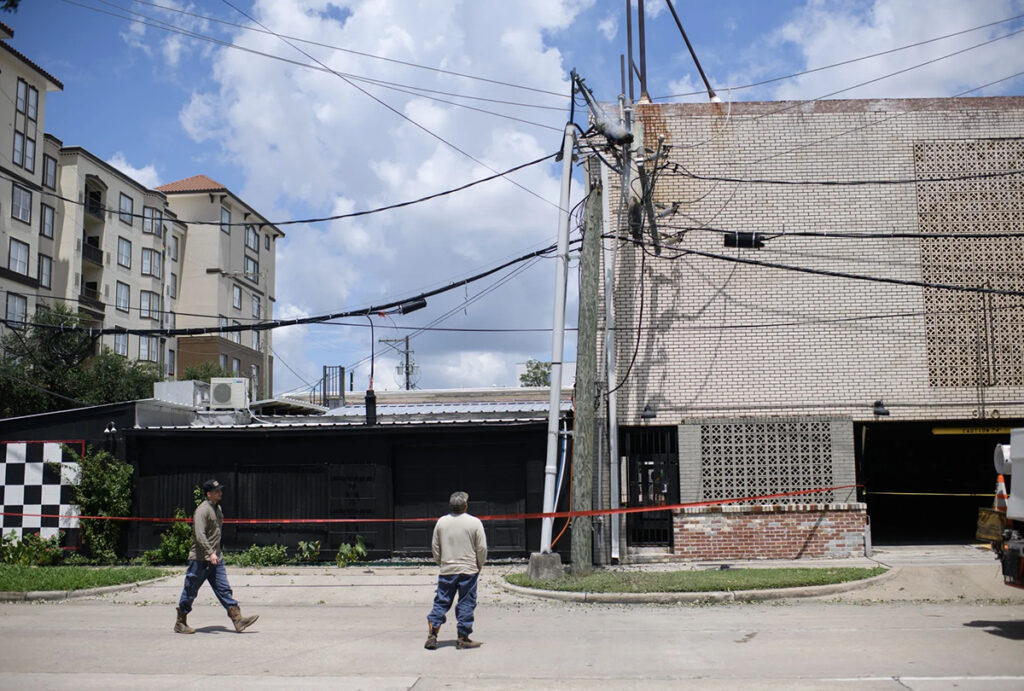By Naureen S Malik and Mark Chediak

Downed power lines following Hurricane Beryl in July 2024. Photographer: Mark Felix/Bloomberg
Houston’s electric utility is confident significant grid investments will prevent a repeat of widespread blackouts that occurred last summer following Hurricane Beryl.
CenterPoint Energy Inc. is integrating artificial intelligence to predict tree growth, using light detection to spot tangled wires in the area’s dense vegetation and upgrading its weather modeling to better predict storms, according to Chief Executive Officer Jason Wells said.
Last July, 2.2 million homes and businesses lost power after Hurricane Beryl made landfall as a Category 1 hurricane, leaving people without air-conditioning in temperatures topping 100F (38C). Political leaders and CenterPoint’s customers criticized the utility’s preparedness and communication. The company’s outage tracking map crashed, forcing consumers to use a burger chain’s app to find out what areas had electricity. A new version of the map was launched in August after the storm.
“We are much more prepared than last year,” Wells said in an interview Tuesday in Bloomberg’s Houston office. “We will have a much better response overall, a lower number of outages and much better communication.”
CenterPoint has rushed to bolster a grid that failed just 11 months ago. It’s also made efforts to publicly outline what it’s done in the aftermath of the storm for a community — Harris County — that the Federal Emergency Management Agency designated most vulnerable to extreme weather in the US.
Read More: Worker Shortages Were Behind Days Long Power Outages After Beryl
The utility hired tech firms to create a grid that uses automatic breakers to resume power flow after a disruption. It’s focused on tree-trimming near electric lines, and it brought on a meteorologist to start an in-house weather service and determine where to place 100 weather stations atop poles to get granular readings.
Summer heat and this year’s hurricane season are poised to test the upgrades — and Wells. The former executive for California utility PG&E Corp. was appointed CenterPoint CEO in January 2024 just before a series of extreme storms. In May last year, a derecho brought high winds that ripped windows off skyscrapers. Weeks later Hurricane Beryl knocked out power to millions, leaving customers sweltering in July heat.
Hurricane Beryl exposed system vulnerabilities and showed Houston to be a tale of two cities when it comes to power. While thousands of residential customers were in the dark, the utility’s high-voltage transmission system wasn’t impacted, Wells said.
The transmission system, which serves industrial customers, is the backbone of the grid. Wells said upgrades to the distribution wires snaking through neighborhoods didn’t keep pace. Investments made over the past year, he added, are already paying off as the utility has reduced customers’ average outage time in 2025 to 40 minutes from 80 minutes the same time last year.
“I understand the skepticism,” Wells said. “We have to re-earn our customers’ trust.”
Share This:




 CDN NEWS |
CDN NEWS |  US NEWS
US NEWS 
























